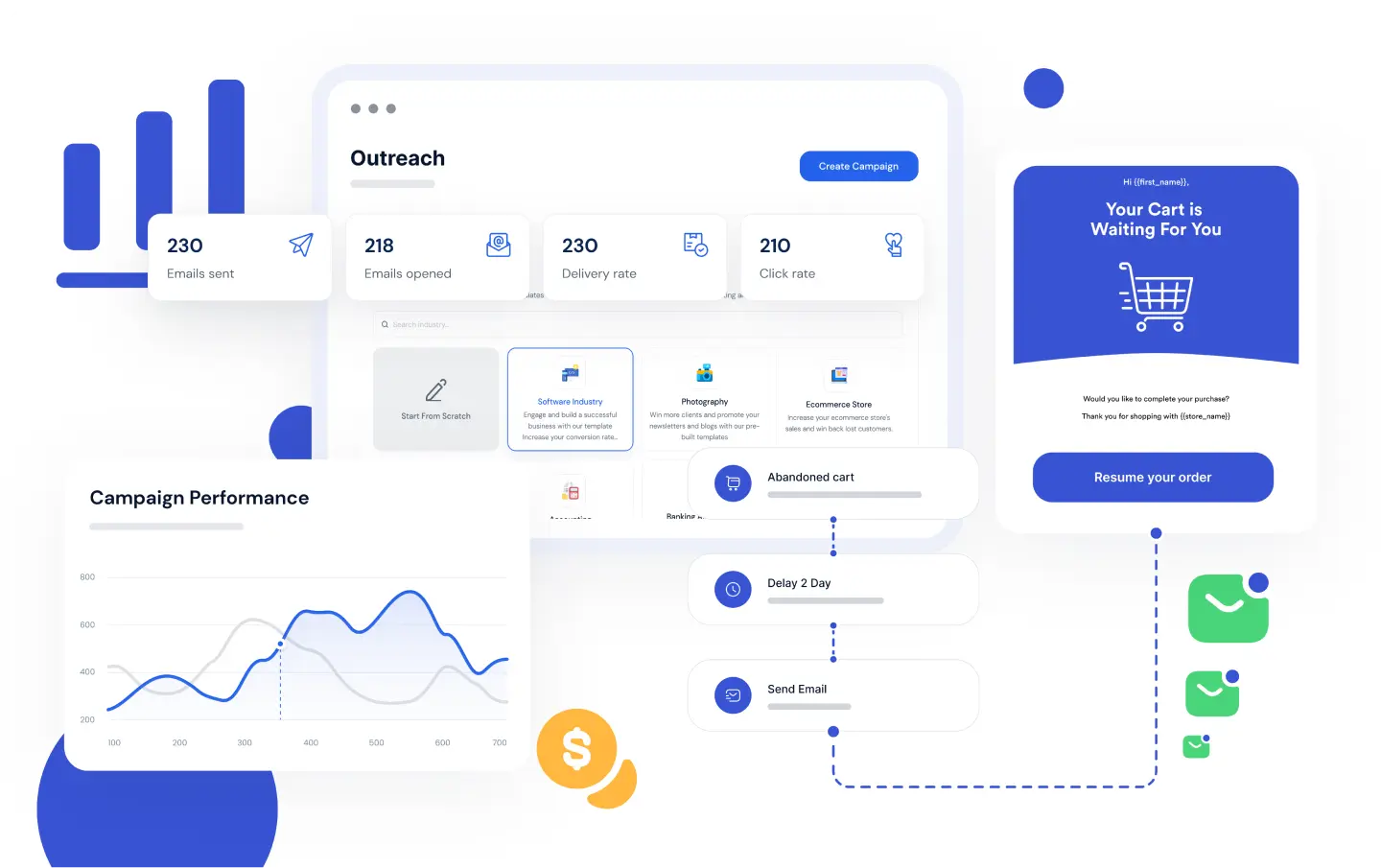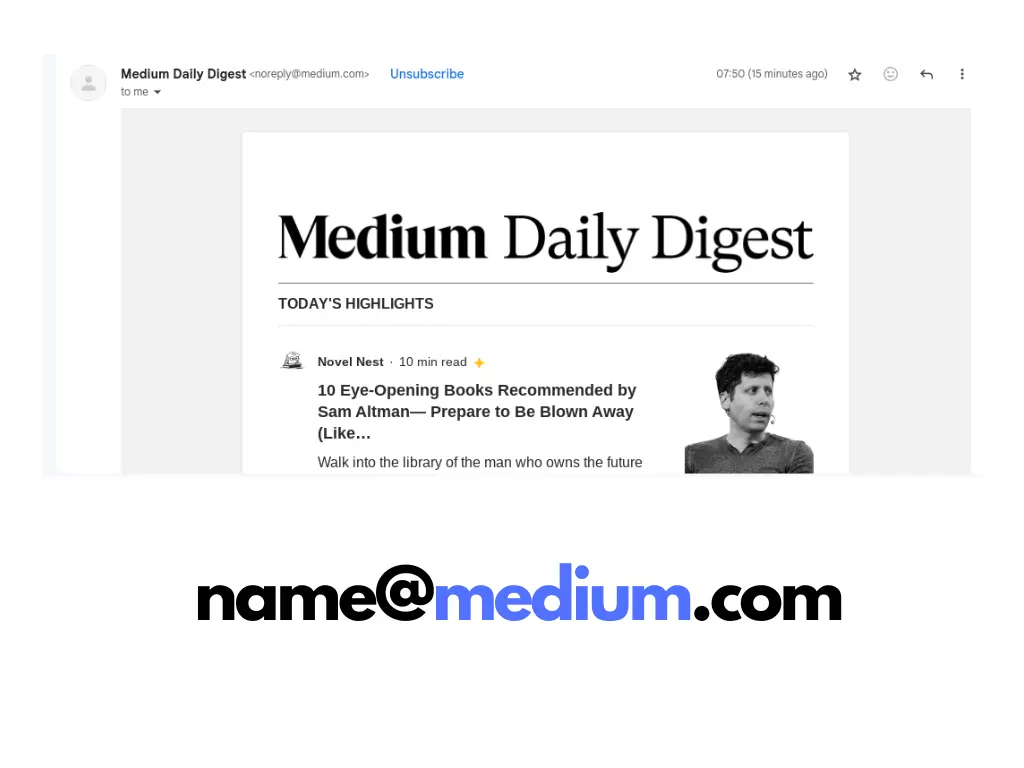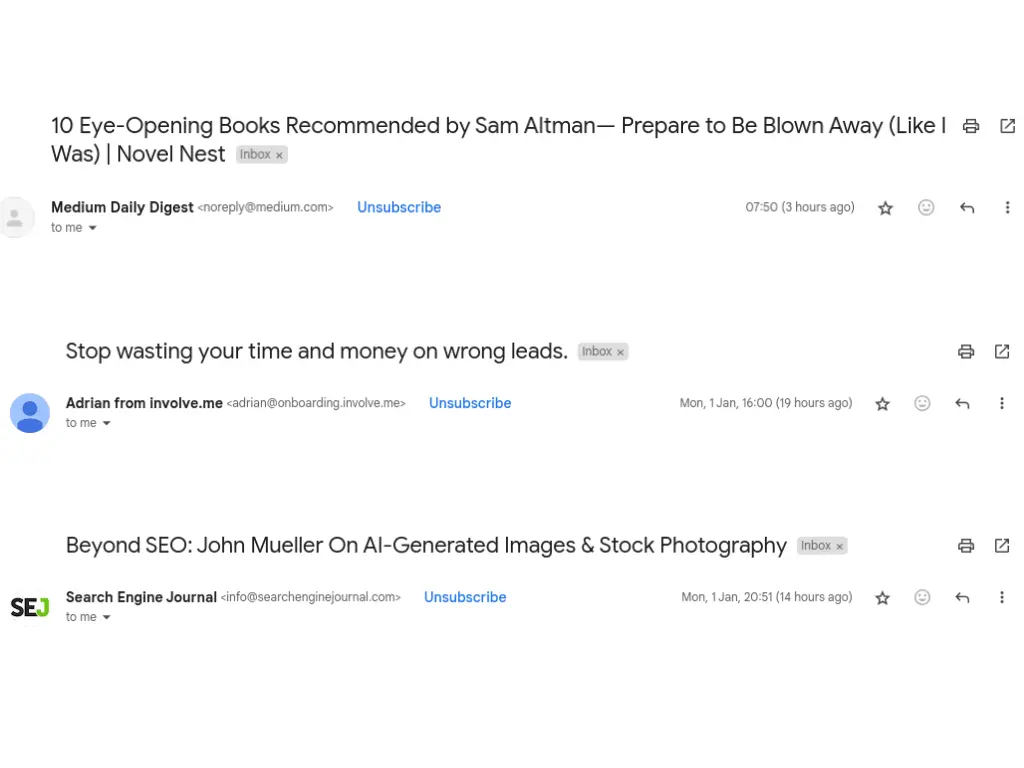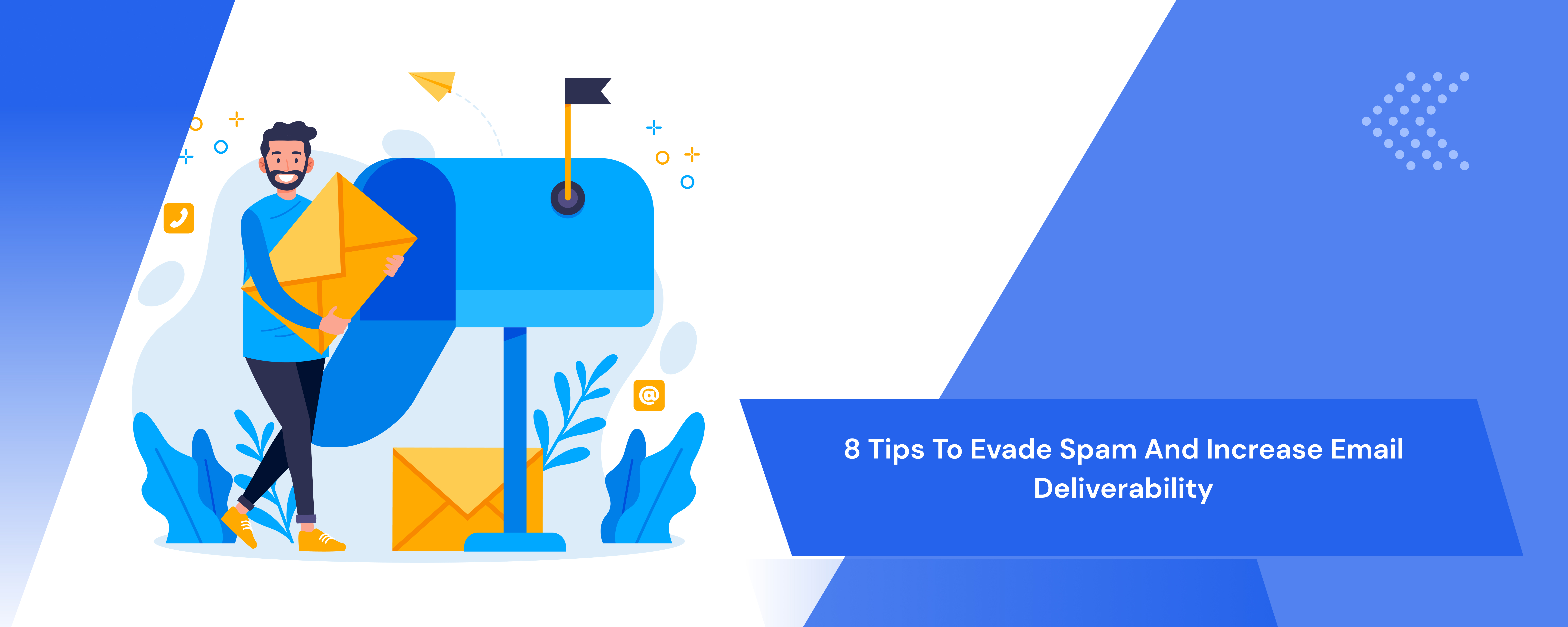Email deliverability is a set of important metrics used to track your email campaign performance, including spam rate.
Imagine sending out highly relevant and quality content that could potentially convert your prospects into customers only to settle in the spam folder. Your email marketing campaign could become a painful reminder of your failure.
Data shows that 49% of emails sent were spam out of 162 billion emails being sent every day.
In most cases, improper configuration and poor-quality content are the reasons why your email ends up in spam.
But let’s not fret. In this article, we’ll break down everything you can do to reach your audience’s inbox and come out as a reputable brand.
This will definitely help boost your email deliverability.
Table of Contents
Spam Filters
Spam filters are built to ignore unwanted emails flooding your inboxes and push the top priority emails above in the stack.
Scammers who get past the service provider’s security system intend to harm your device and get access to secured mail.
To prevent these kinds of malicious attacks from happening, algorithms are built to track user preferences and segment emails of priority.
This is put into action through the recipient’s choice of whether they want to receive an email or not.
Currently, email providers let unengaged senders’ emails be pushed behind and flagged as inappropriate spam.
It has become essential to optimize your content and configure your settings to arrive at your recipient’s inbox.
On a positive note, studies have found that 77% of marketers claim they have seen an increase in email engagement in recent years.
What is their secret sauce?
Proven Effective Email Marketing Strategies
According to Hubspot research conducted in 2021, the following email marketing strategies lead to over 70% success rate.
Segmentation
Email segmentation is a powerful marketing strategy that involves grouping your email list based on demographics, interests, and behaviors.
This helps send targeted emails with content relevant to the demographics that will most likely receive engagement. The smaller the groups are, the more targeted your content has to be.
This is best implemented by Harvard Business Review which has different subscription options for different roles and professions of the audience.
Personalization
Personalization is the outcome of segmenting your audience based on their needs and sending out relevant information to them. This can be executed by collecting data on your subscribers or the general audience, to personalize the mails before reaching out to them.
This leads to more open rates, click-through rates, and purchases and ultimately generates more revenue.
Email Automation Campaigns
Email Automation helps you align with your audience’s buying journey and send emails according to that. Welcome emails, product recommendation emails, and purchase emails can be automated and take a load of tasks off your shoulders.
With Gozen’s Growth platforms, marketers can automate the entire email marketing process from outreach, and audience building to customer retention.

Tips to Evade Spam Filters
While the above strategies do bring results, you have to ensure your emails aren’t listed in spam by providing quality content. Follow these tips to create such content and win over your audience’s attention. Additionally, try out configurations and tools to enhance email deliverability.
Use Appropriate Domain Names and Improve Sender Reputation
Your company’s domain name represents what you stand for and what you are selling. It helps people recognize your website and email address, positioning itself as a brand.
The name you choose for your domain is what people have to remember.
Using an appropriate and relevant domain name helps your targeted audience, algorithms, and mail administrators identify the sender.
The domain name you choose is crucial not just for brand recognition but also for email deliverability. When considering the best practices, remember that an appropriate domain and good sender reputation are vital. For those in the process of changing domains, understanding the domain transfer process ensures a smooth transition without affecting your email campaign effectiveness.
Domain reputation is determined by your ISP and mailbox providers and shows whether you’re providing value to your recipient or not. Setting a good reputation around your domain, which will reflect positively on your brand, is important.
Domain reputation is also affected by the domain age.
How long your website has been active increases the chances of your emails landing in your recipient’s inboxes. It indicates that you have a good sender reputation, which your email provider rates for the frequency you set and the quality you provide.
In fact, domain age is also one of the factors that spam filters consider.
Yo u can check your sender’s reputation using the Google Postmaster Tools.

In the above example, Medium is literally a medium for people to share stories and information. This makes it a unique and memorable name, while also advocating legitimacy.
Authenticate Sender Domain with SPF, DKIM, DMARC Records
The top reason why emails end up in spam is that your domain is not configured for SPF, DKIM, and DMARC records. They help evade spam and stop impersonators of your domain.
Ensure security before sending out emails and let your audience know that you’re an uthenticated sender.
Google Postmaster tool is great for monitoring DMARC and DNS records.
Provide Double Opt-in
Enabling double opt-in offers an additional security step that makes sure your senders want to join your email list.
Unlike the single step verification which allows your audience to subscribe in one click, double opt-in leads them to email confirmation. This way you only get high-quality leads and that your subscribers actually want to receive your emails without landing in spam.
Warming Up
Email warm-up is one of the ways to build a positive sender reputation with the email service providers and intermittently increase the number of emails you send per day.
They stimulate positive engagement by sending emails at a safer pace to safer addresses. This helps you build a good impression with the recipient’s servers.
Avoid inactive subscribers and lessen bounce rate.
Use Relevant Subject Lines
One of the best practices in writing email subject lines is to keep it concise. Short subject lines with keywords that send a sense of urgency have proven to be effective in increasing open rates.
Keywords like ‘exclusive’ and ‘limited time offer’ can assure that the recipient opens the email to read or at least skim.
But there’s a fine line between sounding natural and being salesy. It is highly recommended to stay on the fence by avoiding sounding too generic or too promotional.
Trigger words like ‘Earn $$$’, and ‘100% Free’ can also get you to spam.
Experts from the Harvard Business Review agree that maintaining personalization and sticking to the average length of 34 characters can bring the desired results.

Remove Spammy Keywords in Content
Focusing on content quality is crucial to grab your audience’s attention and convert them into leads.
The value you provide through your content is the only metric to win over your audience.
Tactics and strategies fail to work for long.
Keeping your content informational is more responsive than promotional content. Make your content highly relevant to your target audience as it will help improve your domain reputation and build trust amongst them.
Experts also suggest personalizing the first few emails as much as possible to increase user engagement.
Limited Use of Design
Including too many images and graphics can also flag you as spam in your recipient’s account. A limited number is recommended as well as linking to documents.
A mobile-friendly design can help your recipients navigate your daily emails and care about your brand’s products or services.
Allow Unsubscription
Google has mandated that unengaged and uninterested users unsubscribe from your email listings. Unsubscription must be carried out within 10 business days.
Further engagement can lead to recipients blocking users and sending them to spam.
Familiarize yourself with anti-spam laws like the CAN-SPAM and GDPR.
Conclusion
By prioritizing permission-based lists, crafting engaging content, and customer-centric service, can immensely boost your email deliverability rate as well as increase brand visibility.
Any successful email marketing strategy follows quality over quantity and sends out valuable information to its subscribers. Additionally, consistently personalized emails at the right hour can bring the desired results for your email marketing campaigns.
By following this, you can build trust with your audience and gain their loyalty.



